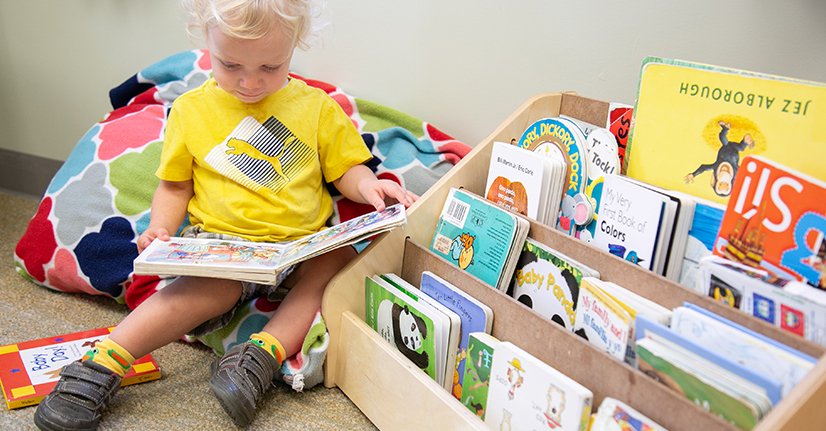
FAQs
General
-
The director’s office is located directly in front of the main entrance. Additionally, our entrance doors are secured with keypads that require a code for entry.
-
Here at North Haven Child Development Center we value and honor continuity of care for young children. Children participate in mixed age group settings to deepen relationships and build the social emotional foundation needed for future learning.
-
Yes, we have an open door policy for parents at all times. In fact, we would love for our parents to spend more time in the classroom and volunteer as much as their schedule allows.
-
Yes, North Haven Child Development Center is licensed by the Office of Early Childhood and it is located on the Parent Information Board.
Health & Safety
-
Yes, all staff must be tested for tuberculosis every two years as mandated by the State of Connecticut for Licensing and must complete a yearly physical.
-
Yes, all staff are required to complete these training within the first year of employment and annually so that they don’t expire. The program supports staff to ensure training is completed through our own Nurse Consultant.
-
As stated in our parent handbook, children will only be released to those individuals who are authorized to pick by parents. All individuals must be on the pickup list and show a valid ID or the child will not be released. There are NO exceptions to this.
Infants & Toddlers
-
All babies will be placed to sleep on their back within their own crib. Cribs will be free of bottles, toys, pillows etc. If a child needs support to fall asleep, a caregiver will rock the child in their arms.
-
Parents must provide all diapers and wipes for children. Our staff will let you know with ample notice when your child is running low on either item.
-
Parents must provide all formula and or breast milk for children. Our center will store and dispose of all formula and breast milk in accordance with Health Standards. We strongly encourage our breastfeeding mothers to come to the center to nurse if their schedule allows. Additionally, all babies will be held during bottle feedings.
Program
-
With ASQ:SE-2, we monitor 7 key areas of social-emotional development:
-Self-regulation
-Compliance
-Communication
-Adaptive functioning
-Autonomy
-Affect
-Interaction with people -
Screening tools usually take the form of a series of questions or checklists used to track children’s development relative to milestones achieved by a larger group of children of the same age. A home-grown checklist won’t accurately evaluate this development. Effective screening tools need to be carefully and systematically validated by research.
With ASQ:SE-2, parents or other caregivers answer a series of simple questions regarding their child’s social-emotional development (e.g., “Is your baby able to calm himself down (for example, by sucking on his hand or pacifier?)”; “Does your child like to be picked up and held?”). Children whose social-emotional development appears to fall significantly below that of their peers are flagged for further attention.
-
Social-emotional screening is an applied method for detecting and monitoring signals that indicate whether a young child may be delayed in aspects of social-emotional development, such as communication, autonomy, affect, and interaction with people.
The process of screening is not intended to serve as a diagnosis for a child—but rather to carefully and accurately inform meaningful next steps, such as more in-depth social-emotional assessment, further monitoring, or other. Typically, in many cases, the act of screening rules out the need for deeper assessment.
This is where quality counts. Using a valid, reliable screening system like ASQ:SE-2, professionals can screen children for social-emotional concerns accurately and cost-effectively.
